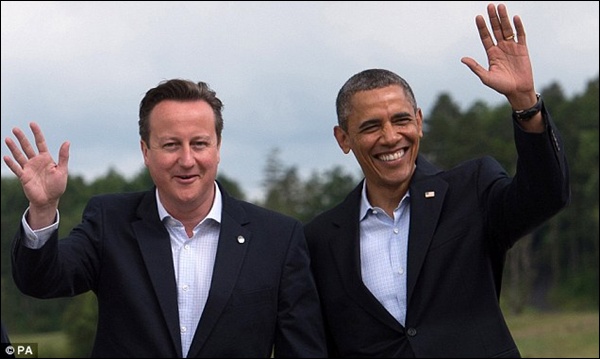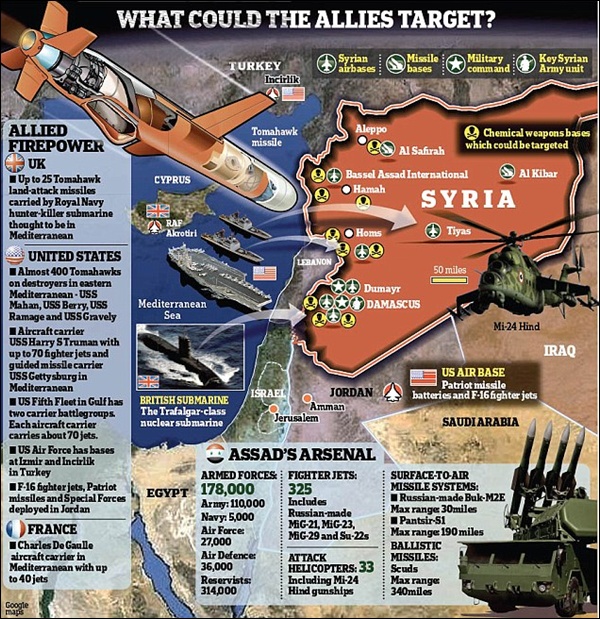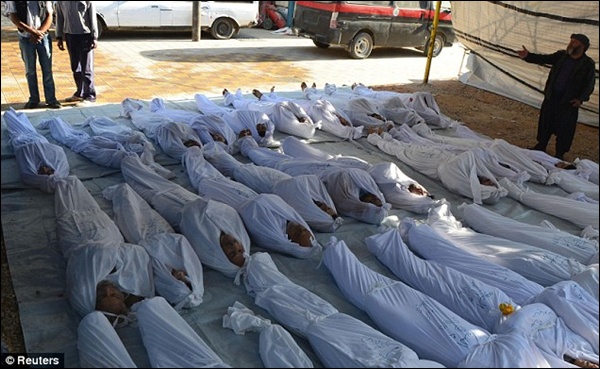

Attacking Syria may lead to missile strikes, cyber warfare and terror attacks on US soil, warn milit
Reuters
Attacking Syria may lead to missile strikes, cyber warfare and terror attacks on US soil, warn military experts
• They cautioned could provoke revenge attacks home and abroad
• Confident that Israel and allies in region could deter immediate response
30 August 2013: A US attack on Syria could provoke reprisals ranging from missile strikes to terrorist attacks and cyberwar, according to government officials and private analysts.
US military commanders are preparing contingency plans for a potential counter-strike by Syria’s military, defense officials have revealed.
The officials expressed confidence that the United States and U.S. regional allies such as Israel could deter or neutralize an immediate response from Syrian President Bashar al-Assad.
A European defense official said the purpose of building up large forces near Syria - mostly in the form of naval assets - was to deter Assad.
’The important thing is to have enough force to control the escalatory response,’ said the official, speaking on condition of anonymity.
Even so, ’there is no military action without risk, and a punitive strike on Syrian regime forces would carry some. Weapons could hit unintended targets, perhaps killing civilians,’ Jeffrey White of the Washington Institute for Near East Policy think tank wrote this week.
’The regime could strike back in unexpected ways against U.S. and allied interests, or it could resort to further (chemical weapons) attacks inside Syria.’
Syria and its close regional ally, Iran, both are widely believed to have ballistic missiles capable of reaching Israel and other U.S. allies nearby, such as Turkey and Jordan.





Hezbollah, the Shi’ite militia backed by Tehran and fighting on Assad’s side in Syria, has tens of thousands of short-range rockets in southern Lebanon, near Israel’s border.
Many analysts predict that Syria and its allies will avoid a direct conflict with the United States and opt instead for an ’asymmetric response’ aimed at Western vulnerabilities - terror or cyber attacks, for example.
Assad also could opt not to respond to a strike, hoping to wait out the US and allied military threat.
A US official with experience in the Middle East said that Washington also is concerned that Iran could turn up the heat in Iraq. So far, resurgent violence by Sunni militants there has not been answered with retaliation from Shi’ite militias with ties to Tehran.
There are still militias in Iraq ’that would respond most likely if the Iranians put pressure on them,’ said the official, who is not authorized to comment publicly on the matter. ’It’s something that’s of concern, and something that’s on everybody’s minds.’
The potential for retaliation by Syria or its allies is among the growing concerns in the U.S. Congress and elsewhere about President Barack Obama’s moves toward launching missile strikes against Syria in light of its apparent use of chemical weapons against civilians outside Damascus on August 21.
Some lawmakers and analysts say they worry that Washington could be sucked into Syria’s 2-1/2-year-old civil war - something Obama has long resisted. Others argue that a few volleys of missiles aimed at Syrian military facilities would have little effect, and might even embolden Assad.
’It is vital we avoid shortsighted military action that would have little impact on the long-term trajectory of the conflict. We can’t simply launch a few missiles and hope for the best,’ Senator James Inhofe, the top Republican on the Senate Armed Services Committee, said on Wednesday.
How Syria itself will respond will be key, although many analysts expect Assad initially will simply absorb any strikes as long as they do not appear intended to decapitate his government.